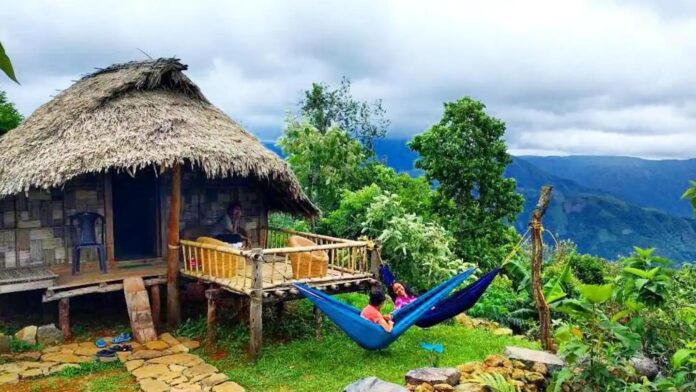India boasts a number of lesser-known treasures that remain unexplored by many. One such hidden gem is Kongthong. This small, picturesque village is located in Meghalaya‘s East Khasi Hills, which is approximately 60 kilometers from the capital city of Shillong. This village has a population of about 600 people and is known for its natural beauty and self-sustainability. The place is also renowned for its extraordinary tradition of using musical melodies as names. This ritual has earned Kongthong the nickname ‘The Whistling Village.’
In Kongthong, every individual’s identity is woven into a unique melody, known as Jingrwai Lawbei, or ‘Song of the Clan’s First Woman.’ When a child is born, the mother composes a distinct melody that serves as the child’s lifelong identifier. According to reports, this enchanting tradition has been passed down through generations and symbolizes the deep bond between mother and child. The melodic names serve not only as a cultural expression but also as a practical means of communication.
Surrounded by dense forests and rugged terrain, conventional communication methods can be challenging in Kongthong. The whistling names enable villagers to call out to one another across long distances, ensuring that the intended recipient recognizes the tune immediately. Each tune is distinct and categorized into two forms. These forms are a longer one that is created at birth while a shorter version of the melody is used for regular interactions. These musical names exist alongside traditional names, which are used for formal identification or by outsiders.
Kongthong’s villagers take immense pride in their heritage, which has enabled them to preserve this unique tradition for centuries. The village is an experience unlike any other and has attracted the attention of travelers and cultural enthusiasts in recent times. As the village opens up to ecotourism, visitors can experience the serene environment and immerse themselves in the musical culture. This hidden gem is a must-visit destination for anyone seeking a deeper understanding of India’s rich cultural diversity.


